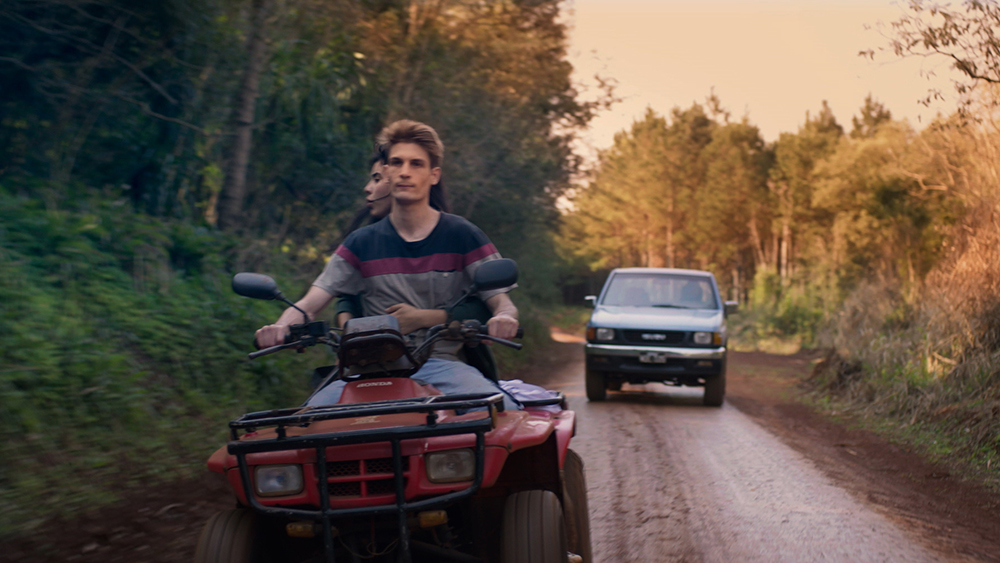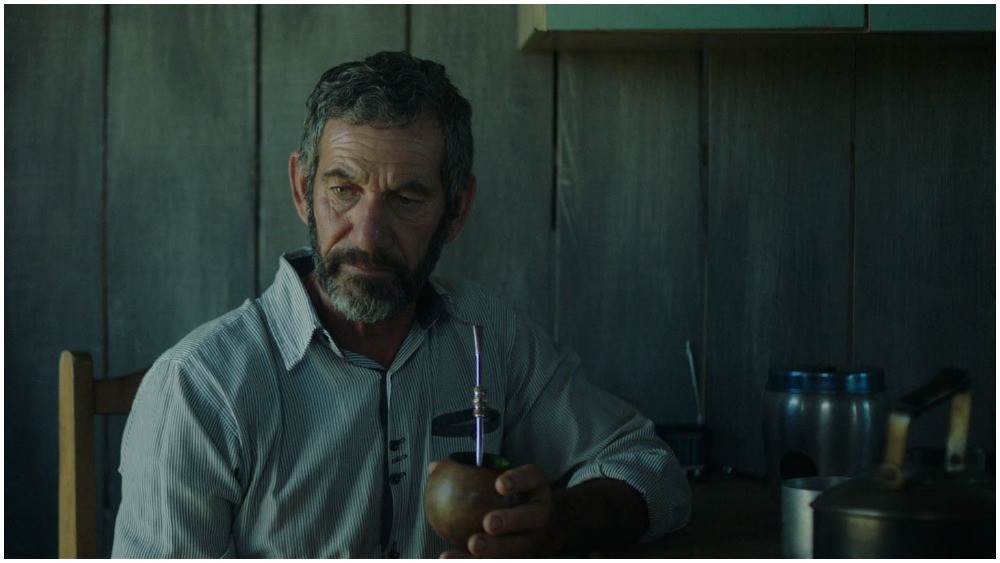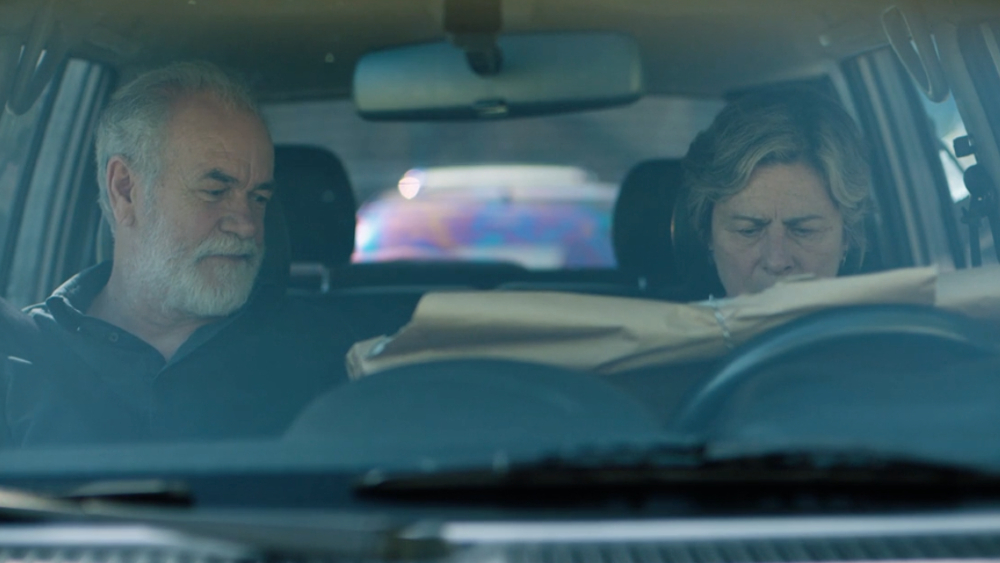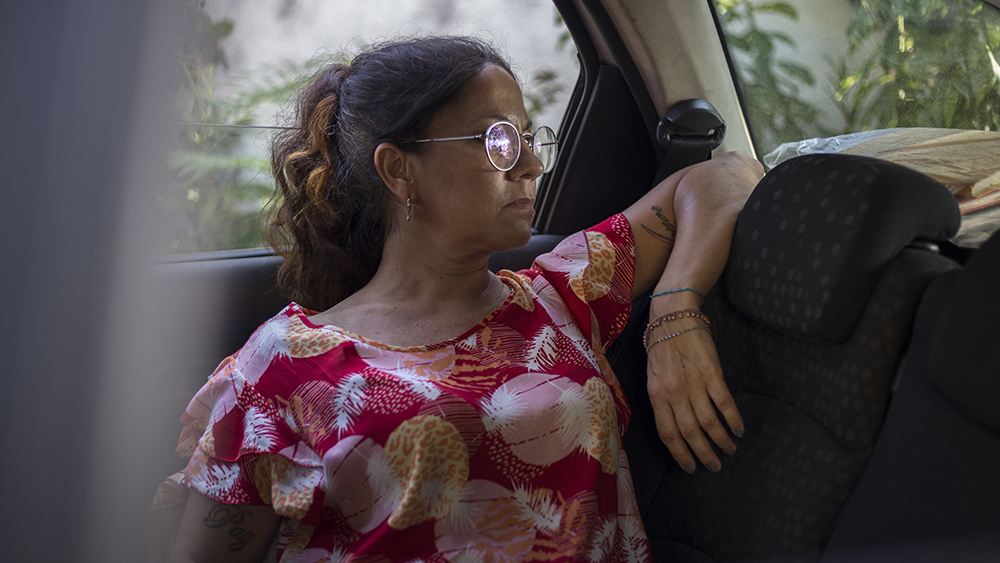Por Variety
JULY 9, 2021

Giovani Borba’s “Empty House,” Mar Pescio’s “That Weekend” and Martin Desalvo’s “El Ciego, Border With Death” will feature in a notable Sanfic Goes to Cannes pix-in-post showcase at July’s Marché du Film.
Two further films, both psychological dramas, bring large breath to the selection: Flavio Botelho’s tragic but ultimately life-celebratory “The Life That’s Left”; and “Patient(ly),” a searing critique of Chile’s healthcare system.
A new talent springboard, Sanfic Goes to Cannes is the first time Sanfic has made the Marché’s Goes to Cannes films-at-rough-cut strand. That marks just the latest expansive move for Sanfic, Chile’s Santiago Intl. Film Festival. Framing five titles which all screened at Sanfic Industria’s Work in Progress in March, the Cannes lineup also marks fruit of a bold, counter-intuitive move by Sanfic Industria.
As other festivals pushed back to later in 2021, Sanfic’s industry arm moved into the breach, having postponed its August 2020 edition, launching an online event in March 2021.
Selection enjoyed unprecedented access to some of the best first feature art pics coming onto the market in Latin America, bidding for big fest selection in the second half of 2021.
“Latin American film production is still proliferating, blessed with singular and diverse visions, and it has held up well despite the pandemic and the bad management of Latin American political institutions,” said Storyboard Media producer Gabriela Sandoval (“Jailbreak Pact”), Sanfic Industria head.
She added: “One instance is the five titles, all works in progress, of Sanfic Goes to Cannes which immerse us in astonishing and moving worlds and stories. They’re titles which will generate a lot of heat in the near future.”
Three of Sanfic Goes to Cannes’ five titles – from Borba, Pescio and Botelho – are first features, made by confident young auteurs. The section is also rich in genre auteur art films.
“That Weekend” takes place in the city of Posadas, just across the Rio Paraná from Paraguay, a a modern Western frontier whose inhabitants mix Guaraní, Spanish and Portuguese.
A horror film at times, “El Ciego” also unspools in Misiones, in Argentina’s deep North, as Juana, mid-teens, one day stumbles on “El Ciego,” a dark forbidden thicket which superstition has it, reveals dark secrets. That spurs Juana to becomes obsessed with her own family’s dark secret: How did her mother die?
Set on Brazil’s vast Pampa, by the border with Uruguay, “Empty House” turns on a taciturn former cattleman, now out of work, whose vast livestock grasslands are being replaced by high-tech big business soy production.
But “That Weekend” and “Empty House” differ in one way from classic mid-last century Westerns. These pictured, with bygone-era cultural bias, the supposed carving out of civilization in wilderness.
Sanfic Goes to Cannes delivers in contrast a devastating diagnosis of the destruction of traditional worlds, and the fragility of not only the poor but even Latin America’s middle classes – seen in “The Life That’s Left” and “Patient(ly)” – when confronted by wrenching change. The region’s commodities fueled optimism of the aughts now seems a distant dream.
A brief breakdown of Sanfic Goes to Cannes titles:
“El Ciego, Border With Death” (“El Ciego, Frontera con la Muerte,” Martín Desalvo, Argentina)
The latest from consolidating Argentine auteur Desalvo, like his “Darkness by Day,” “El Ciego” mixes suspense drama, horror beats and character study. Juana, mid-teens, tends a charcoal pit with her drunk, morose father Rubén, and investigates with increasingly obsession the mysterious death of her mother when she was a small child. But rather than a whodunnit, which moves the narrative along, “the emotional heart of the film is the search for a sense of own identity which occurs in adolescence,” says Desalvo. Shooting in Misiones, he added, allowed a further “sense that the only future possible is either a life of sacrifice at work or emigration to a big city where the future isn’t easy either.”
“Empty House” (“Casa Vazia,” Giovani Borba, Brazil)
Raúl returns from a night of cattle rustling on Brazil’s endless Pampa to his home, a dainty shack by a dirt road, to discover his wife and children are gone. Raul attempts to cling on to the vestige of an old cattle world which offers little future. A revisionist Western with large visual and sound design ambitions, “Empty House” captures Raul’s sense of the near mythic status of the bygone cattle age, far from the righteous Christian consumerism of a new Brazil, embodied by his brother-in-law. “The tension and violence of the Western can reflect the times we live in, especially in a Latin American context,” Borba told Variety. Produced by Tatiana Sager at Panda Filmes, and almost certainly big fest bound.

“The Life That’s Left”, (“La Vida Que Resta,” Flavio Botelho, Brazil) Produced by Brazilian powerhouse Gullane, now preparing Netflix’s “Senna” series, Flavio Botelho’s debut charts two parents’ desperate but divergent reactions to son Felipe’s suicide from depression. Francisca retreats into a shell, obsessed with punishing the person responsible for Felipe’s death. Carlos moves into Felipe’s apartment, loses weight, befriends Felipe’s friends as if he could bring his son back by impersonation. The question is whether either can find any sense to their lives and sense of their own worth after such decimating tragedy. Inspired by the director’s own experience, and inevitably moving.

“Patient(ly)”, (“Pa(de)ciente,” Constanza Fernández, Chile)
The latest film Roberto Doveris’ Niña Niño Films (“Plants,” “The Prince”), a burgeoning force on Chile’s film production scene, and a stinging critique of Chile’s underfunded healthcare system. In personal terms, however, it’s the emotional odyssey of a doctor from domestic patriarch and professional authority on bioethics to a frailer being who, struck down with the rare Guillain-Barré Syndrome, gains what he reproves in an initial scene of the film: Empathy. Fernández’s second feature, following on “Map for Love,” a Sanfic 2012 best director winner.
“That Weekend” (“Ese Fin de Semana,” Mara Pescio, Argentina, Brazil) Produced by Maravillacine (“Marilyn”) and Murillo Cine (“The Snatch Thief”), “That Weekend” has mother Julia returned to her multi-ethnic Posadas tenement to sign a document authorizing daughter Clara to leave Argentina with her father. Julia also aims to reclaim a stash of money she’s hidden in her flat. But Clara, 17, has her own ideas for her future and needs the money to achieve them. A conflictive mother daughter fiction drama – and neo-Western, says Pescio – but often with a near documentary edge, portraying a rarely visited setting. “I wanted to drill down on the bonds between characters who are conditioned by economic context,” she adds.
